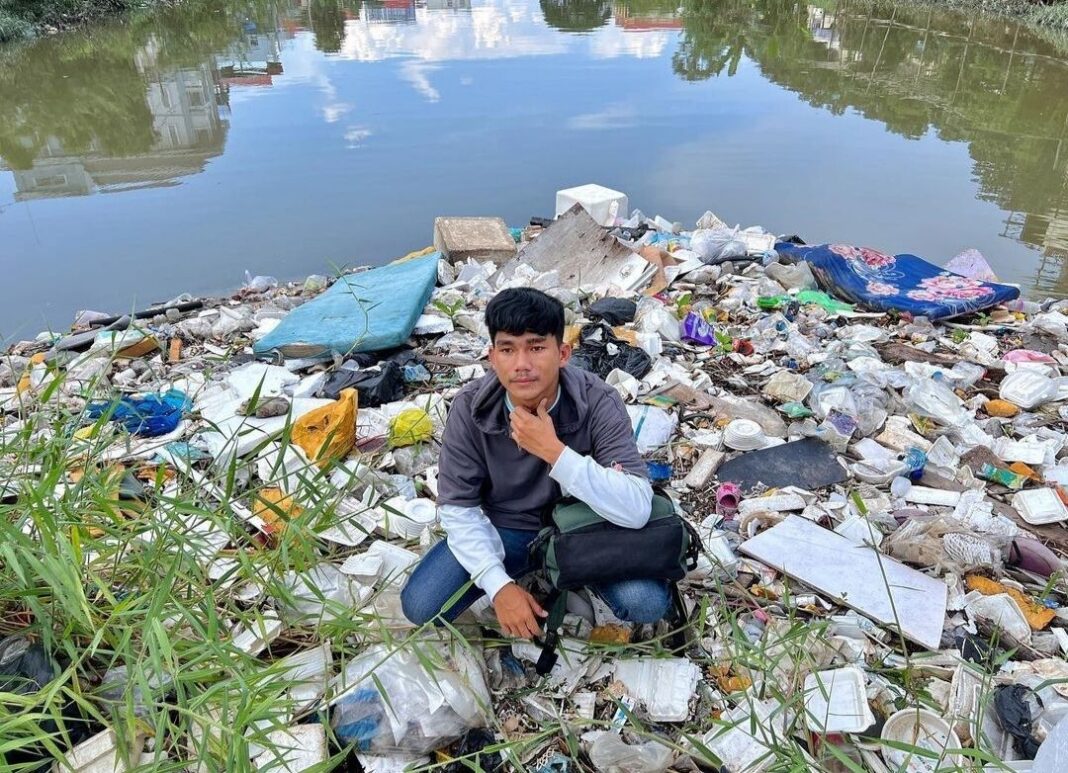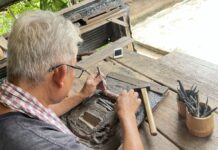Hem Sophem, a university student in Phnom Penh and founder of Nisset Plastic, a group dedicated to cleaning garbage from drainage canals and roads, won first place at the second ASEAN Youth Eco-Champions Award in Laos last year. The victory has inspired other young people to become more involved in environmental conservation.
Choeng Lily, a journalism trainee at Newsroom Cambodia, spoke with Sophem about his work as a plastic collector.
Q: What does Nisset Plastic mean?
A: Nisset Plastic is the name of our group of students focused on tackling plastic waste. With so many types of waste out there, we decided to concentrate on plastic, which led us to choose the name Nisset Plastic. Our goal is to make a difference in reducing plastic pollution.
Q: What motivated you to begin collecting garbage in the sewers and on the streets?
A: The main issue we face is the trash problem. When I started the group, I noticed how bad the situation was, with people throwing trash into sewers, on the streets, and in public spaces like the riverside. This motivated me to create this project as a way to set an example, especially for young people. Another inspiration came from seeing people, including students, littering at school. I want to instill the right mindset about waste disposal, particularly among youth. By gathering students and involving them in this initiative, they can learn and change their behavior through participation.
Q: Have you noticed any results from the campaign?
A: Of course, there are thousands of users, and it’s clear that many of those who have joined us do not behave badly. Even if they littered before, they won’t after receiving the message. Our outreach is extensive, reaching hundreds of thousands through the media, including press and television. When people see what we do, it touches their hearts. The situation has improved in some places, like the waterways, which were once littered but are now clean and orderly. However, some still continue to litter despite learning about the problem. We can’t stop them, as no one has the authority to enforce action against it.
Q: Will you continue your efforts in the future?
A: We are fully committed, and while we don’t know how long we will continue, we remain dedicated to this cause. Even though it’s a small initiative, it has a positive impact on society. So far, other youth groups have followed our lead, forming similar groups in other provinces and cities.
Q: What advice would you provide to young people who wish to start a movement like yours?
A: There’s no need for a large group, significant strength, or specialized knowledge to make a difference. In terms of the environment, starting anywhere at any time is fine. Simply not littering is already a valuable contribution. If you want to do more, you can form a team to collect rubbish like we did or teach the younger generation.












